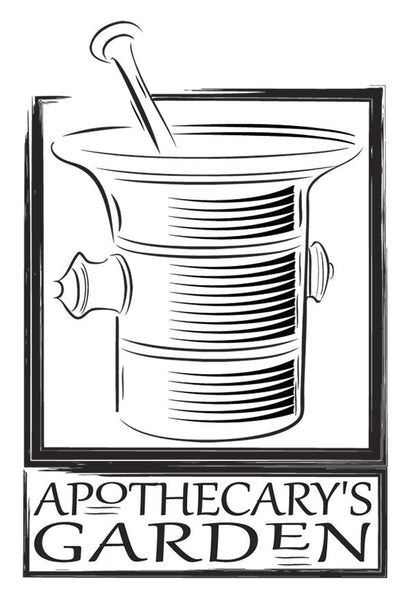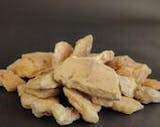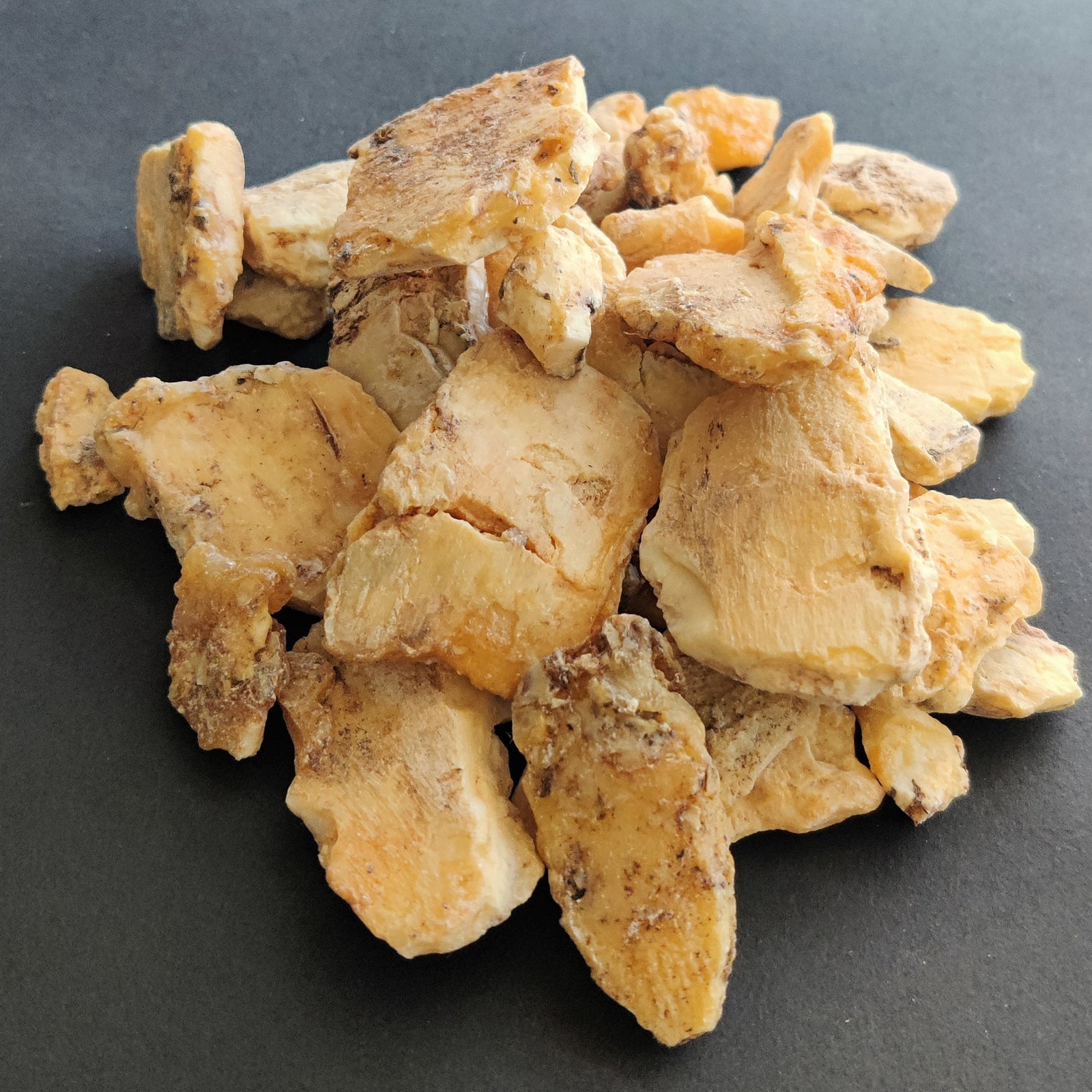
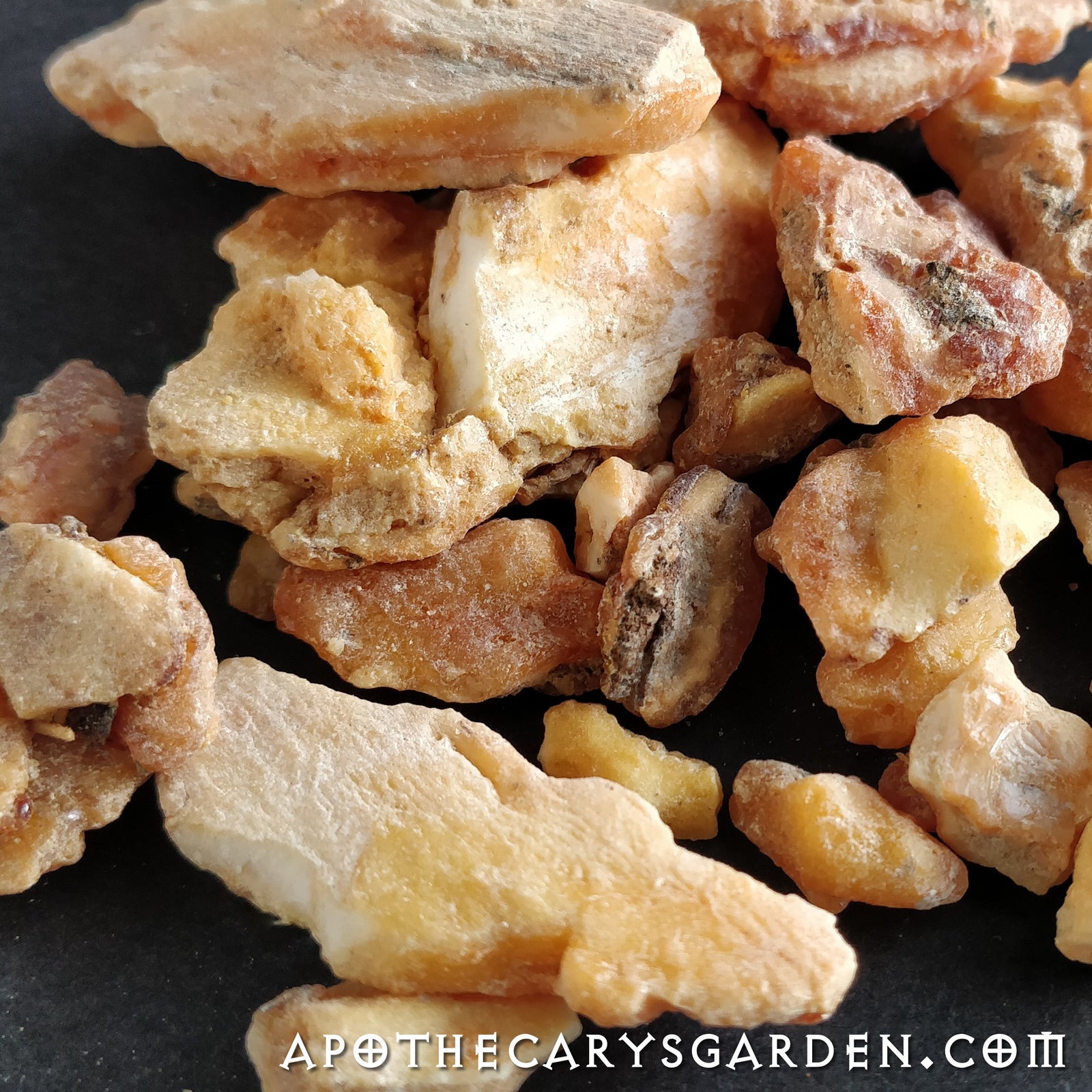
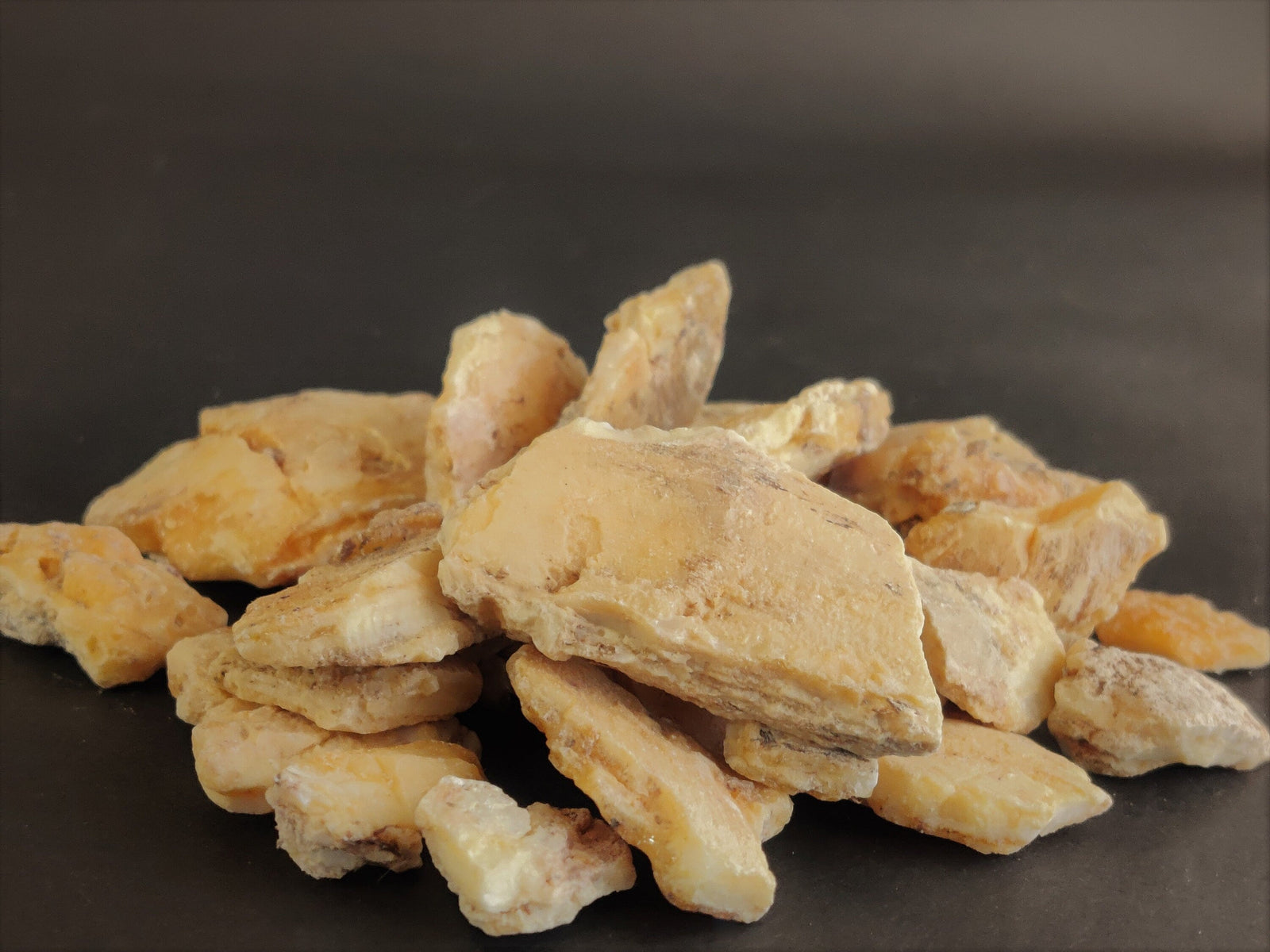
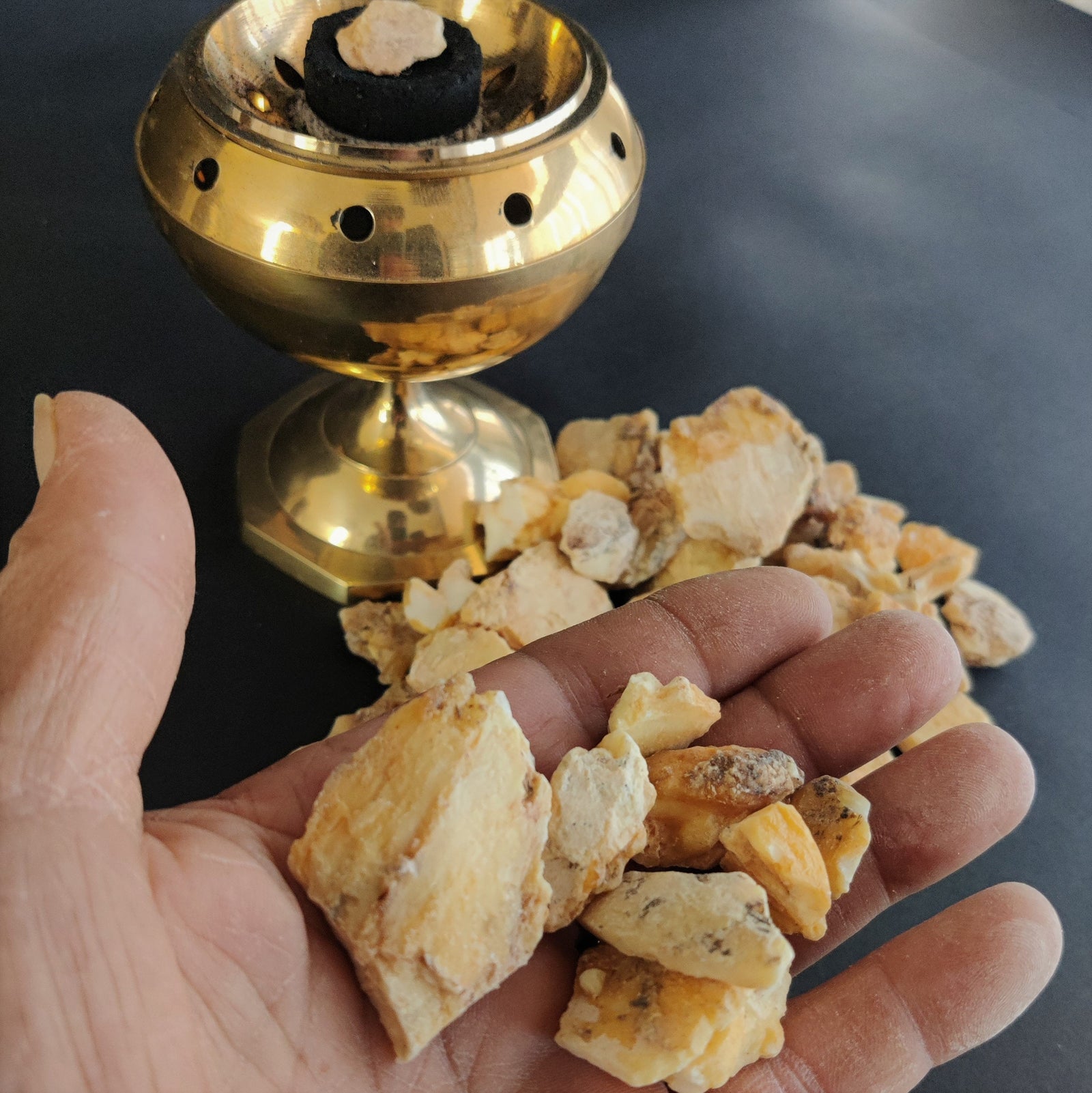
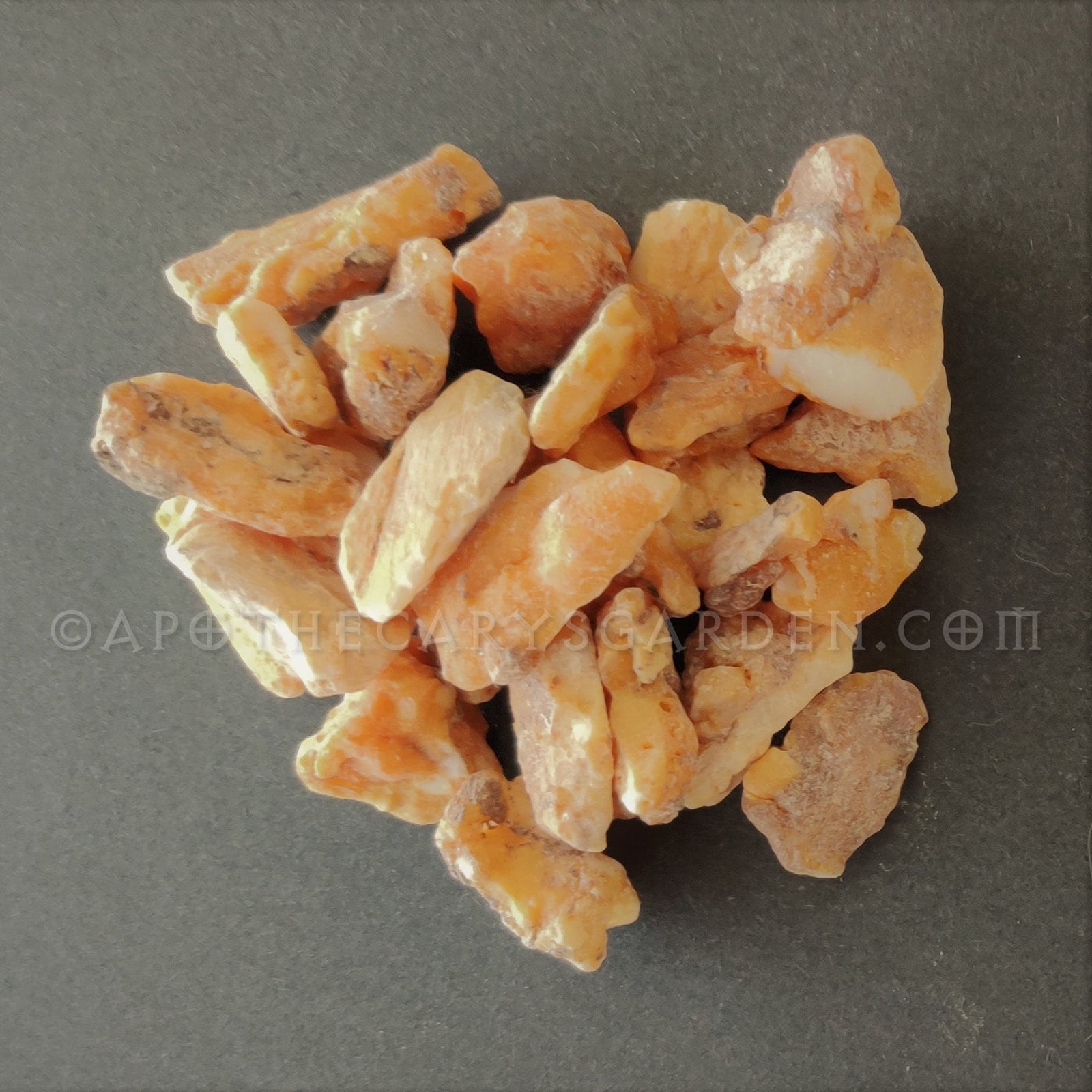
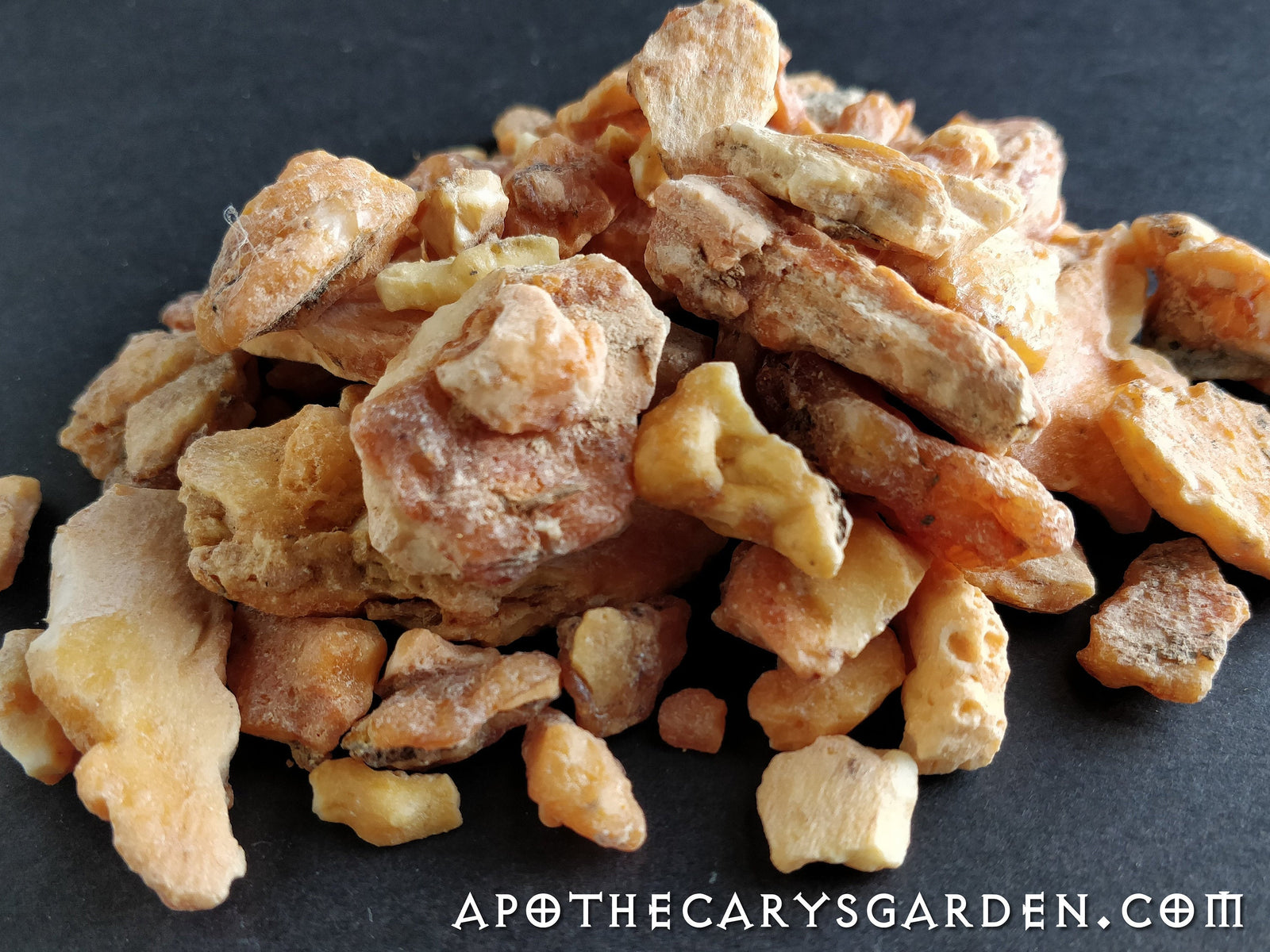
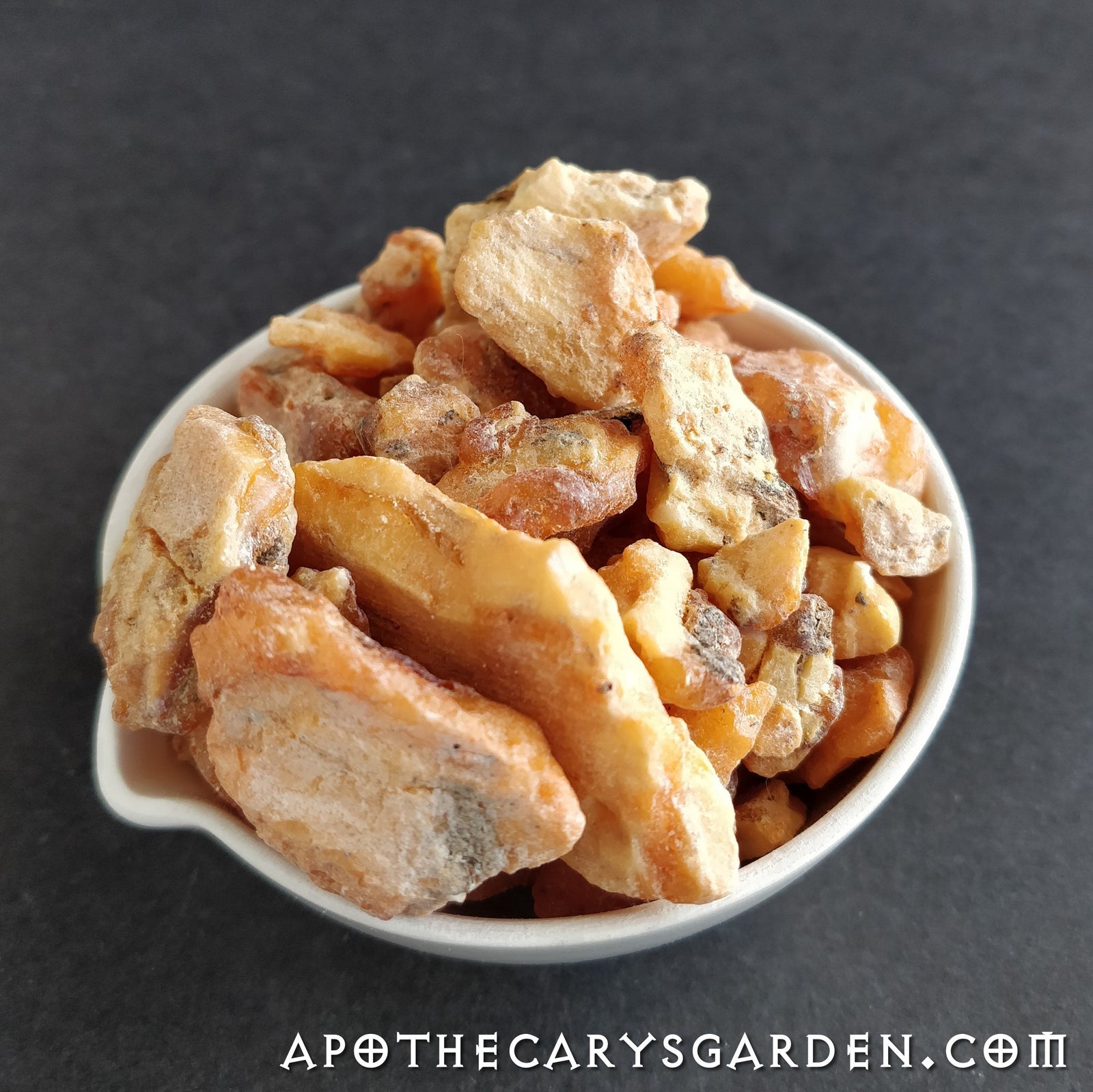
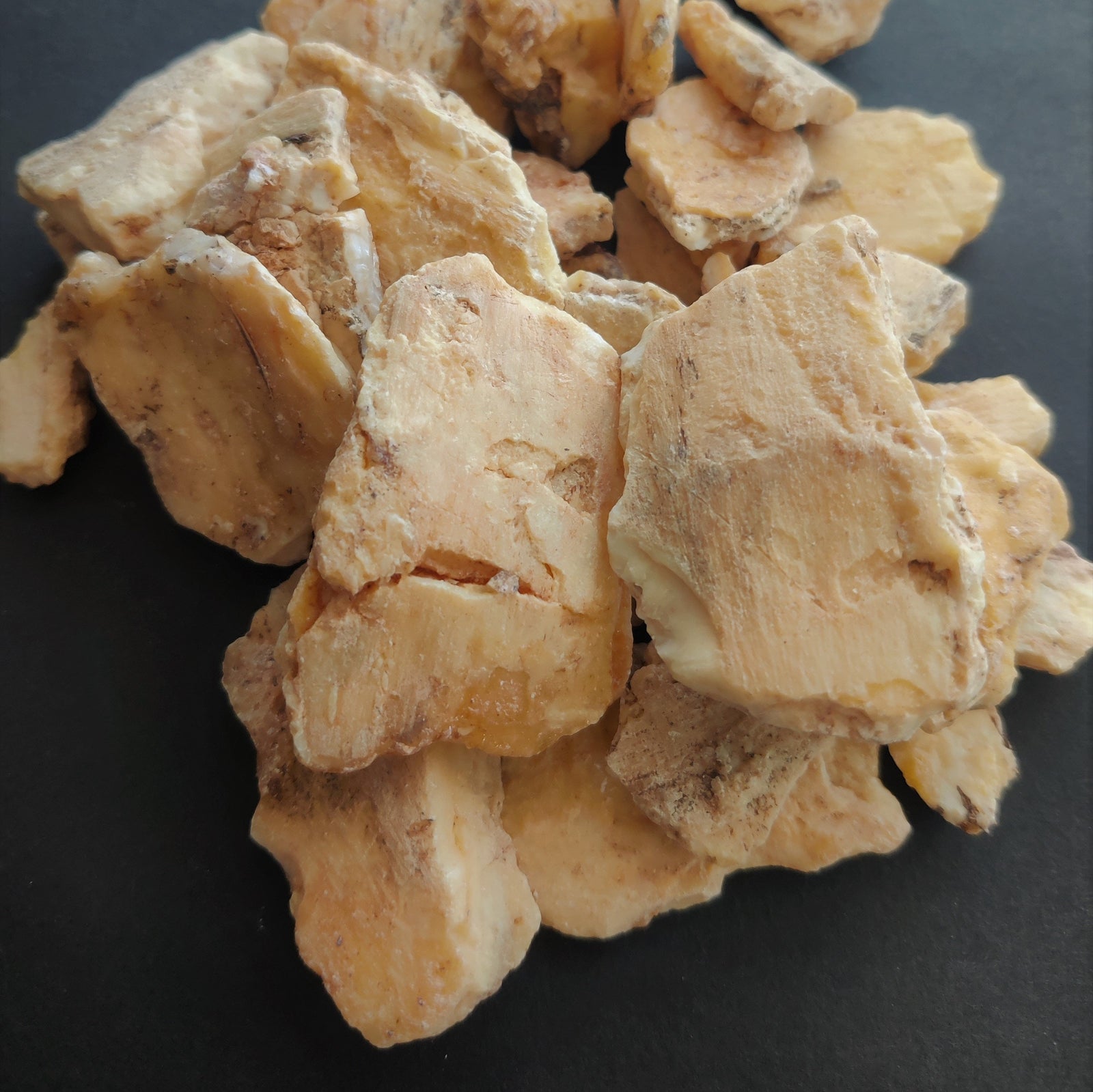
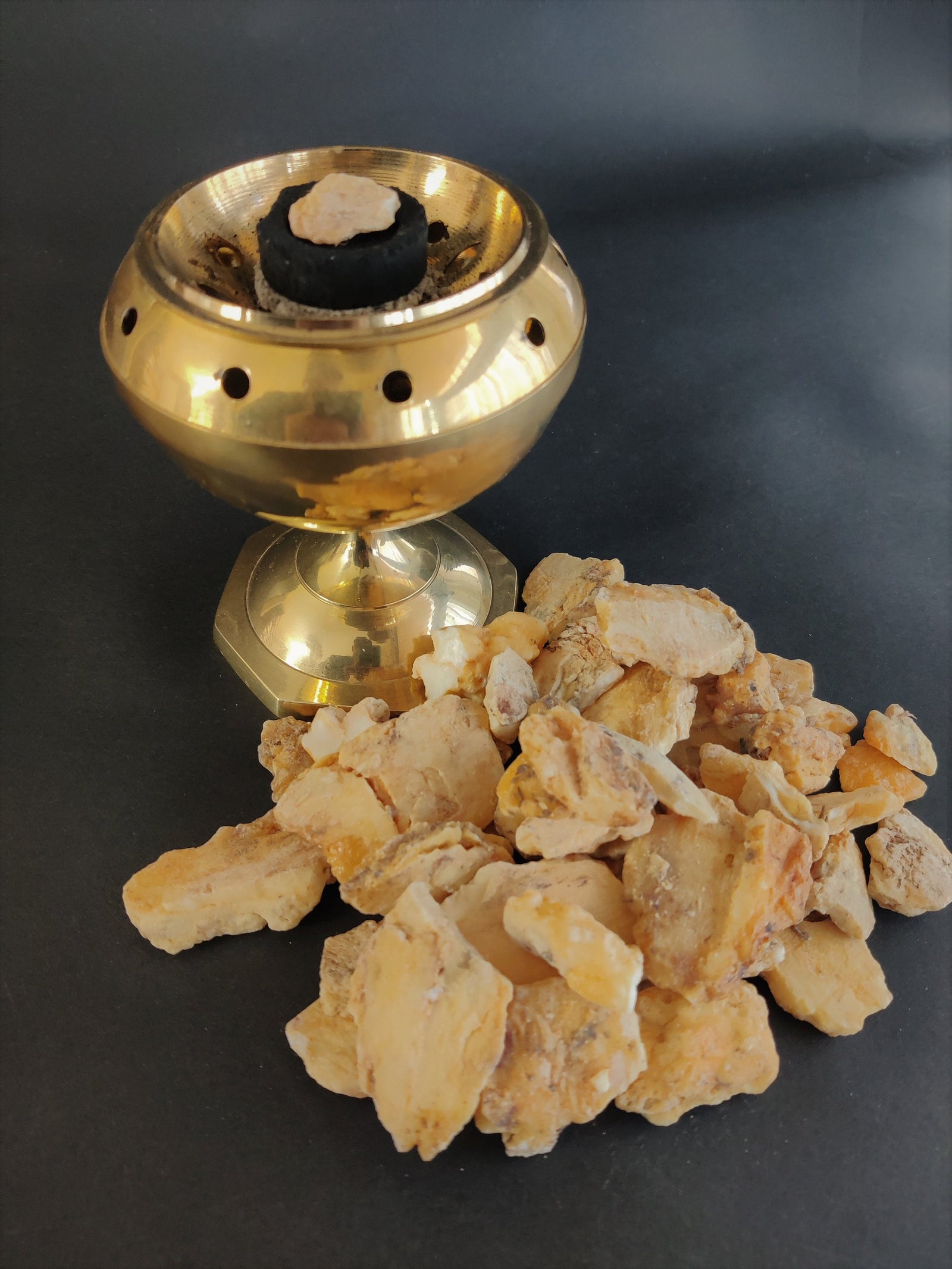
Benzoin Sumatrana-Almonds
Benzoin Sumatrana is a new and rare Benzoin resin on the market Not only is it sustainably harvested, but it supports small communities that work with their local forests.
When I first smelled Styrax Sumatrana Benzoin burning, I was reminded of Monastery-type incense blends, many containing Benzoin and rose. When burned, the natural presence of these floral notes made me wonder if this resin inspired some of the old Church and Byzantine incense blends. Especially considering that Indonesia has been trading its resins with the west for over 2000 years.
Styrax Sumatrana resin is collected in the local forests by families and communities that have been doing so for generations. This traditional practice goes back hundreds if not thousands of years. The farming families take care of the forest, replanting trees when needed, and the forest takes care of the farmers by sharing their resin with them and helping them generate an income to sustain their families. It is both a sustainable relationship and harvest. A reciprocative relationship. This dramatically contrasts our Western approach to nature’s resources, which is based on taking as much as possible from the land and giving as little back as possible. One can quickly see how we have arrived at a global environmental crisis point.
Recently, there has been increasing conflict between governments and big businesses that cut down the forests to plant vast mono-crops, such as timber or Palm oil plantations and the communities whose livelihood has always depended on working with the forests. In some cases, the corporations win, and farmer families are left without their traditional land rights and income, and in some situations, the farmer’s rights are upheld. Purchasing sustainable forest products such as Benzoin Sumatrana resin directly supports the farmer families and maintains healthy biodiversity.
Without a market, Benzoin Sumatrana farmers are losing interest.
Since this resin has only been sold to local markets, the farmers do not profit as much as their counterparts in the South who sell their resin (Styrax Benzoin) on the international market. The smaller return from a dwindling local market has led to a decline in the number of farmers interested and able to carry on the tradition. Many farmers are turning to more mainstream crops, which require clearing the land and abandoning the old ways of working in harmony with the land.
Benzoin Sumatrana farmers believe that selling their Benzoin resin on the international market and receiving the same high prices afforded to the mainstream Benzoin resin would incentivize more farmers and families to continue practicing this ancient tradition and beneficial relationship with the forests. A sustainable relationship that benefits the land, forests and the local economy. To this end, I am working to promote their product in the West and support their livelihood.
This is one little thing we can do to cultivate sustainable management of our aromatic resources and to support remote communities that usually get the short end of the stick. Sometimes the little things add up and make a big difference. We are so focused on quantity, volume and low cost that we no longer care for the land or its stewards.
Over the decades, I have seen many forms of Benzoin resin. Usually, bland, nondescript chips, tears and powders or grey, grainy, odourless lumps that yield themselves no solvent. The benzoin Almonds in the shop are a beautiful material according to all senses and standards.
Benzoin has been used in incense formulas and skincare products for thousands of years. It has a fixative and transformative effect when blended with other resins and aromatic materials in incense, perfume and medicinal blends. Benzoin has been a favourite ingredient in church incense, second only to Frankincense. It is a staple of Amber Accords.
This premium Benzoin Sumatrana looks identical to the Benzoin Siam and Benzoin Sumatra Almonds in the shop, except for its odour when burned as incense. It has a more complex and uplifting floral/rose scent.
The main difference between the two commercial types of Benzoin, Benzoin Sumatra and the Benzoin Siam is the much higher Benzoic acid content in Benzoin Sumatra. For this reason, Sumatra Benzoin is usually used for preparing pharmaceutical and Apothecary preparations. Benzoic acid retards oxidization in fats, whether they are vegetable carrier oils or animal fats. Most of these oils will go rancid (oxidize) over time and spoil. The benzoic acid in Benzoin Sumatra helps preserve oils and is used as a preservative in oil-based products such as medicated oils, salves, ointments etc. (It will NOT protect water-based products!) I believe that 2% Benzoin is sufficient to act as an oil preservative. (I could be wrong, so do some fact-checking and correct me if I am wrong).
All types of Benzoin dissolve easily in alcohol, DPG and Benzyl Benzoate when preparing tinctures, resinoids and absolutes. They are indeed a pleasure to work with.
The name Benzoin is believed to have developed through centuries of intercultural “Broken Telephone”, much like the children’s game that involves whispering a word or phrase to the person next to you and comparing it with what the last person in the line claims they heard.
When Islam came to Indonesia 700 years ago, it was discovered that the native tribes tapped a tree for its aromatic resin, much like the Frankincense trees back home. This resin was not only fragrant and used for incense and medicine, but it came out of the tree white, just like the Luban or Frankincense of the Arabian cultures back home. Thus, the Arabic name of Luban Jawi, or Frankincense of Java was awarded. (Luban is the Arabic name of Frankincense, Luban in Arabic and Levonah in Hebrew both share the same root word, which means “White.”)
When the French encountered this Balsamic resin, its name morphed to something more pleasing to the Francophone ear, La Benjawi and later L’Benjoin or Benjoin. The English did not like the ring of it, so they renamed it Gum Benjamin or just Benjamin.
In Ethiopia, Benzoin is still called LubanJawi, Lubanjah and one find many variations on the theme when travelling, such as Benjawi, Lubanji Lubanya, Jawee etc..
Benzoin is collected by making a deep incision in the tree’s bark, then bruising the surrounding area with the butt of the knife. This creates a pocket that collects the liquid resin and holds it in place until it solidifies.
Benzoin is traditional medicine in many cultures and has respected spot in both the British and American Pharmacopias.
As an incense, Benzoin yields a dense (intense), sweet smoke when burned and is usually blended with other incense ingredients. It is a component in traditional incense formulas of the Orthodox Church and is often found in the “Rock” type Arabian Bakhour bricks. It is used extensively as a flavour ingredient in food, confection, beverages and tobacco products.
Though pleasant smelling, pure Benzoin produces a potent, thick, choking smoke. You only need a small amount on the coal and in incense blends.
It is used in perfumery for its warm aroma and fixative properties and is considered an essential ingredient in Oriental-style perfumes and Amber accords.
Raw Benzoin resin dissolves completely in Ethanol but not fixed/carrier oils which can be frustrating. It does dissolve, however, in Benzyl Benzoate ( a compound found in abundance in Benzoin resin), which can facilitate blending with carrier oils.
From an aromatherapeutic perspective, Benzoin is calming, grounding, and uplifting and helps alleviate feelings of anxiety and depression.
In traditional Chinese medicine, the Benzoin resin family is named An Xi Xiang, meaning “The peaceful rest fragrance”.
All species of Benzoin trees are traditionally cultivated by families and smallholders, not in large corporate plantations, which keeps this resin sustainable. They are ready to tap after 6-7 years, new trees are planted so when their resin yield drops after a few years and they are sold as lumber, the new trees are ready to tap.
Though used traditionally for its skin healing properties, in excess, Benzoin can cause a reaction in some individuals and can also cause sensitization. Use Benzoin products with care, well-diluted and in moderation. Sensitization means that if you come into more contact than your body is comfortable, even the smallest presence of benzoin close by will stimulate an uncomfortable bodily reaction. For me, my eyes and lips burn if I touch benzoin. Sometimes I only have to look at or think about Benzoin to experience a physical reaction. This is sensitization. So remember, Benzoin is remarkable in its healing effects on the skin, but there is a price for overdoing it.
Dan
Materials: Gum benjamin, Styrax Sumatrana, Kemenyan Toba, Sumatrana Benzoin.

